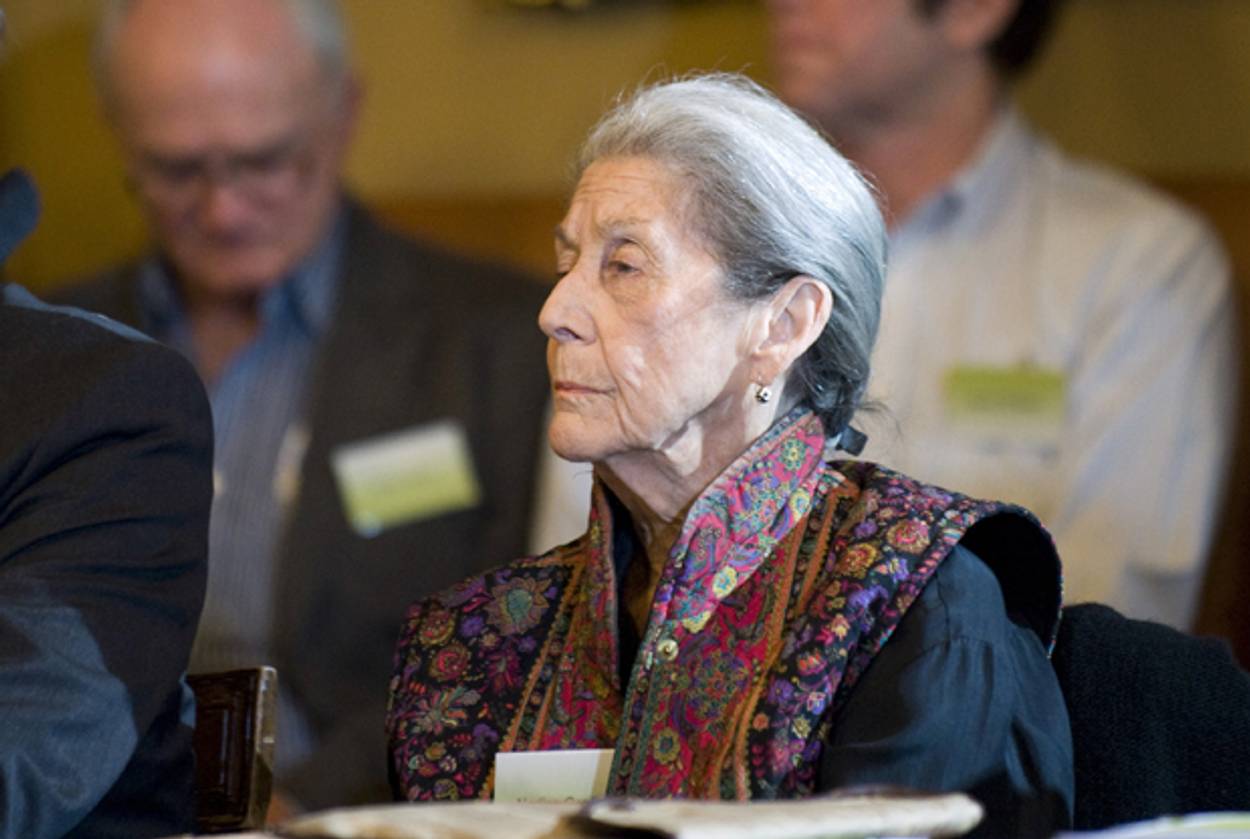South African Activist Nadine Gordimer Dies at 90
The Nobel Prize-winning novelist critiqued the apartheid regime in her work




Nadine Gordimer, the South African novelist whose work won the 1991 Nobel Prize in Literature, died yesterday at age 90 at her home in Johannesburg. One of 13 women to ever capture that honor, Gordimer also took home the Booker Prize, the Rome Prize, and countless other awards for stories set amidst the immoral landscape of her country’s apartheid regime.
Born to Jewish parents—her father was an immigrant from Lithuania and her mother moved as a child from England—Gordimer grew up without particular religious engagement. “My mother was an agnostic and my sister and I didn’t have any education as Jewish children,” she said in a 2009 interview. Her father, a watchmaker, “used to go to synagogue on occasion, fasting and days like that, and to honor his parents and the anniversary of their death, but that was all. I went to the Convent of Our Lady of Mercy, a Catholic convent school, and nobody tried to convert me to anything.”
Gordimer published her first work when she was a teenager and went on to write dozens of short story collection and novels, including Burger’s Daughter, A World of Strangers, and July’s People, engaging with—and critiquing—the discriminatory system around her. Several of her works were banned by the apartheid regime.
A member of the African National Congress (ANC), Gordimer hid its leaders in her home and spoke out against political repression and censorship. Seemingly indefatigable, Gordimer kept up her passionate activism even after the all of apartheid in 1994, when she started calling for greater attention to the HIV/AIDS crisis. She continued her ANC involvement, even when it meant being critical. Last month, she spoke out against a proposed censorship law put forth by its president, Jacob Zuma. Such a law is “unthinkable when you think how people suffered to get rid of censorship in all its forms,” she said in an interview.
In a conversation with Israeli writer David Grossman in 2007 at the PEN World Voices Festival, Gordimer challenged the idea Grossman put forward that his creative work was divorced from the Israel’s long-running conflict with the Palestinians and looked instead only at personal relations. Gordimer told him, “if you live in a conflict situation, as you do, and as I did for a major portion of my life, your characters that you create, they are imbued absolutely with the cage of politics and conflict that is around them, and indeed it’s always there, even when two lovers are in bed together and making love, the situation is in bed with them.”
Previous: Film Honors South African Freedom Fighter
The Rabbi and Nelson Mandela
Related: Nelson Mandela Was a Revolutionary—and These Jews Made Common Cause With Him
Sara Ivry is the host of Vox Tablet, Tablet Magazine’s weekly podcast. Follow her on Twitter@saraivry.